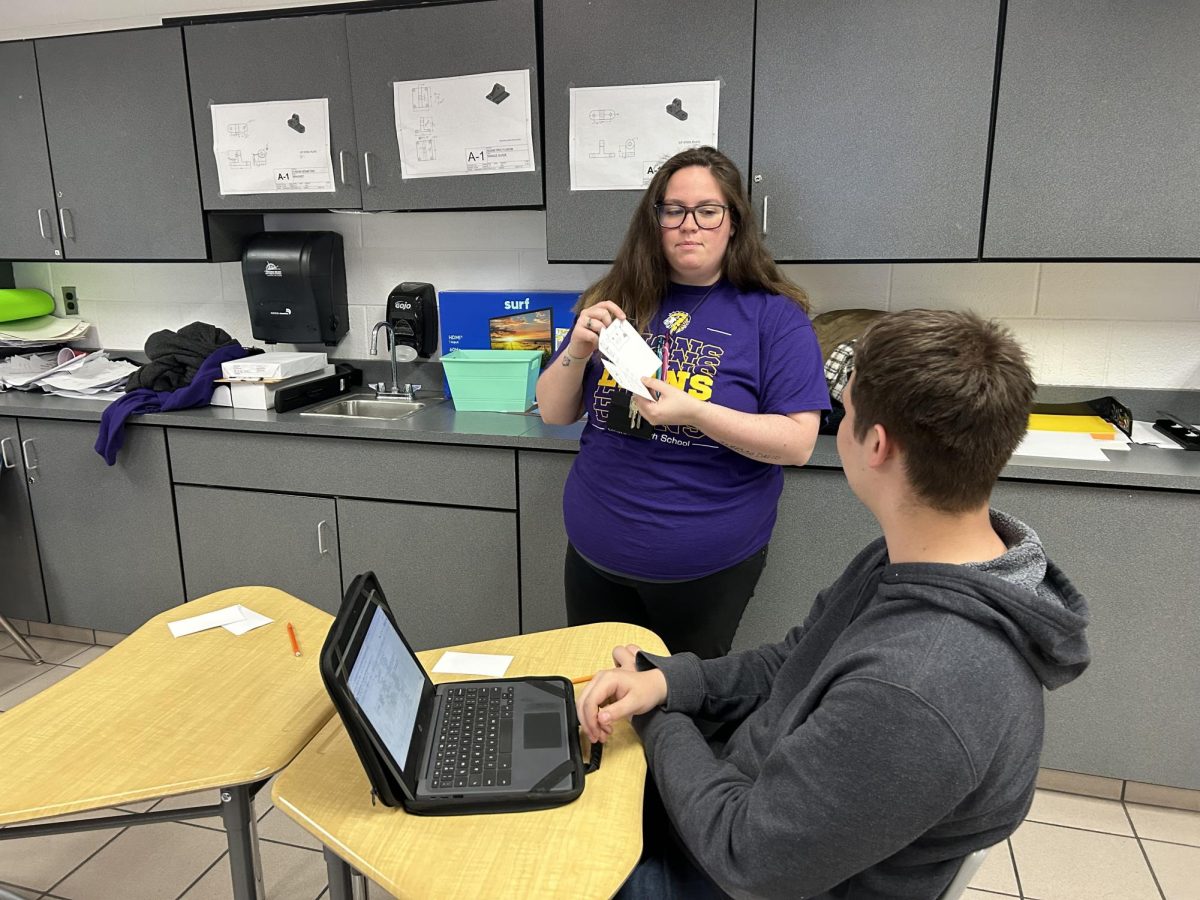As many people know, Senioritis is an immense problem numerous High School seniors face. The majority of students are tired of High school and have the urge to start their lives post-graduation. Other students face Senioritis due to mental health issues or a lack of motivation. Senioritis greatly impacts students’ moods, behaviors, and school performance.
According to U.S. News, many students struggle to finish the school year after spring break without mentally checking out. These symptoms include cutting class, procrastination, a general lack of interest, and dropping grades. Sara Zessa, a college consultant, suggests that setting reasonable goals and agreeing to hold friends accountable for lack of motivation will benefit students.
Mr. Nicholas Kowalski, a history teacher at Tallwood High School states, “At the start of the term, they were on the ball at the month-to-month point. After spring break they fall off. It isn’t that much it’s usually just one or two kids. If a student is struggling to turn in assignments in January [Start of second term] they’re still struggling to turn assignments in May [Near the end of second term].”
Having the freedom to do what they want reminds them how suffocated they feel while in school, leading many students to forget that they can have fun while being a full-time student. They neglect their social and entertainment needs to sustain good grades. Eric Eng, a college admission consultant, mentions that there needs to be a balance between fun and academics. People are more beneficial when they have a balance because they give themselves a break from stress.
Senioritis affects students worldwide and has done so for many years. The term “Senioritis” was first used in the early 1900s. A few Tallwood Students and staff members share their thoughts and experiences with Senioritis.
One Tallwood High School Senior, Hayden Sizemore states, “I do experience Senioritis and I deal with it by not doing anything. I have resigned that I have given up and accepted all my low scores for the year.”
To add to this statement another Tallwood High School senior, Hailey Patt states “I do deal with Senioritis, and honestly I deal with it by trying to think about my future and college.”
In contrast to this statement Eyana Watson, a Tallwood High School senior, explains how she doesn’t experience Senioritis. She states ways she deals with the stress of being a senior, “I do extra activities such as hanging out with my friends or doing track, pretty much anything to get my mind off school.”
Although many students are affected by Senioritis, not all are. This varies for each student. Some deal with it by keeping themselves busy and some have no choice but to endure it and finish the year strong. Students’ behaviors change drastically and this doesn’t only affect students, but also staff members.
Kowalski states that he notices a change in his students’ behavior, “When it comes to seniors there are a lot less seniors that do their assignments as the year goes on. It occurs every year.”
Mr. Robert Johnson, an astronomy teacher at Tallwood High School, explains the change he is noticing, “I’m noticing students are being a little braver with their phones out and not focusing during notes. I also noticed from the last unit we [Johnson’s class] didn’t have many notes and giving the freedom of posting my notes allowed students to be like ‘I’ll get my notes later on or if not it’s no big deal’, That’s going to set me up to where I think I shouldn’t post my notes ahead of time and make sure that students are paying attention.”
He continued, “It is kind of a routine, a lot of students as well as myself like structure, but for some people, the routine gets old so they get lax on doing their school work. Unfortunately for the particle credit students get for doing assignments they think ‘Oh, I’ll just get partial credit’, which triggers their grades. As long as it’s passing they will settle with it.”
There are many causes of Senioritis and every student has their reasons as to why they deal with it or what causes them to feel this lack of motivation.
Sizemore explains why he developed Senioritis, “The fact that I’m already in a college that is offering me a $40,000 scholarship, all I have to do is pass the year and I can handle passing the year.” He continued, “I just feel like I don’t want to do anything anymore.”
Some students don’t get the opportunity to get such a good scholarship, but Sizemore was offered this amazing opportunity. Students may use this as a push and some may use this as a reason to want to get High School over and done with.
Following, Patt explains that “Wanting to hurry up and go to college to get my career started” is the reason that she experiences this. Many other students may agree with this statement.
Due to a lack of motivation, assignments begin to pile up and grades begin to drop. Students choose to let this happen and staff are left to help students bring up their grades. In some cases, the student chooses not to accept the help or doesn’t have the care to.
As an example, Sizemore explains his experience with missing assignments, “I have so many missing assignments. I have six in my AP Psychology class, three in my Biology class, and I just stopped doing work in my AP Government class.”
This is not a surprise for most students, some have even more throughout the year.
Patt relates to Sizemore as she states “I do have missing assignments, this is because I don’t have the drive to complete missing assignments.”
Even if a student doesn’t experience Senioritis they can still have missing assignments from time to time. Some subjects are harder than others and some may not agree that their senior year was the hardest for them. Every student’s experiences are different and they may have lacked motivation in their previous High School years.
As a response to students allowing work to build up and grades to drop teachers have to take an approach to help their students succeed in a non-stressful way as well as ensuring they are obtaining the material for their classes.
Kowalski explains how he helps his students, “Different teachers have different approaches, my approach is to keep motivating them. The year is not over yet, but also to be understanding that the end is in sight.”
He continued, “A lot of kids already know where they’re going to college, they already have their futures lined up, and for a lot of them they’re ready to coast to the end. I understand that but there needs to be a balance of understanding with trying to get them to care.”
A different approach is from Johnson, who states, “Sometimes what I’ll do is go over their grades and tell them where they’re at. I pulled up their final grade and reminded them that if they are passing with a B average they could be exempt which amps it back up a little bit. I still go into the purpose of worrying about their GPA and going to college, and at this point, some are already set in college but for future reference, it could help them.”
There are many ways that seniors can avoid getting Senioritis. They can do extracurricular activities that keep their schedule busy as well as their minds. A lot of seniors begin to stray away from trying to enjoy their youth due to grades. This is a good strategy at first, but it can lead students to become overstimulated and stressed.
Feeding into the thought of Senioritis can harm students in many ways because their GPA can lower and they can pick up bad work ethic. That can lead to bad habits for the future that students take into their adulthood. Students who don’t experience Senioritis have a bit of an advantage because they are less likely to experience poor work ethic.
Watson describes if she feels she has an advantage, “Yeah I do, because of your mindset and just not wanting to do your work looks bad on your college transcript.”
Students and staff may have biased opinions about that statement. So many students are affected by Senioritis, some feel more advantaged or disadvantaged than others. A high percentage of students face this making it extremely difficult for many High School students.
Johnson gives his stance on how many of his students are affected by Senioritis. He states, “I would say at least 50% or more. By the view looking around it seems like it but I still have some of my students following through.”
Senioritis is preventable but it is hard to beat. To combat it and continue to enjoy the rest of the High School experience, students need their teacher’s support and guidance to overcome this hard time.
A motivational quote to help students finish the year strong is, “I always say to work harder and try to keep on all four cylinders and try to do the best you can.” said Johnson.







